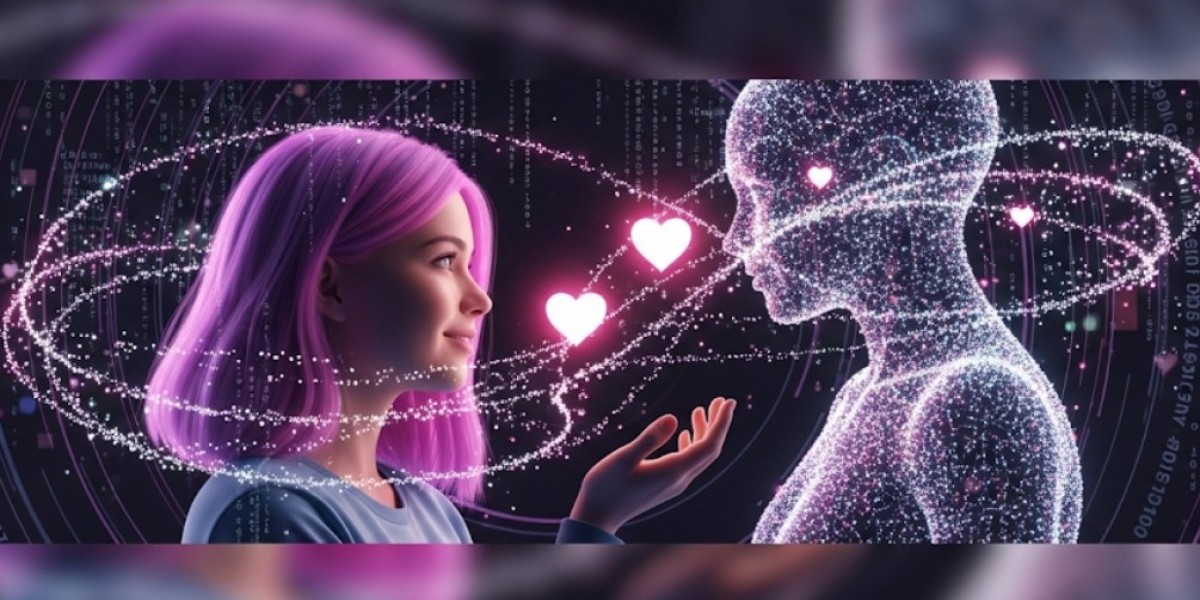We often wonder if technology can step in where human efforts falter, especially in matters of the heart. AI companions, those digital entities designed to chat, listen, and even flirt, have sparked debates about their role in shaping how people approach romance. They offer a space to practice conversations, build confidence, and reflect on emotions without the immediate stakes of real-world rejection. But can these virtual interactions truly make someone a more skilled partner in flesh-and-blood relationships? As AI grows more sophisticated, it's worth examining the evidence from users, experts, and emerging trends to see if this tech holds real promise or just temporary comfort.
What AI Companions Bring to the Table in Relationships
AI companions come in various forms, from chatbots like Replika to more advanced apps that simulate girlfriends or boyfriends. These programs use natural language processing to respond in ways that feel personal and attentive. For instance, they remember past talks, adapt to your mood, and provide feedback on your thoughts. This isn't just idle chatter; many users report feeling heard in a way that's rare in busy daily lives.
Of course, the appeal lies in their availability. Unlike human partners who might be tired or distracted, AI is always on, ready to engage. This constant presence can help people who struggle with loneliness explore emotional depths they might avoid otherwise. Young adults, in particular, turn to these tools for support, with some surveys showing that a quarter believe AI could even replace traditional romance in certain aspects. However, this raises questions about dependency—do they encourage growth or just fill voids temporarily?
In comparison to traditional therapy or self-help books, AI companions offer interactive experiences. They simulate scenarios where you can test out apologies, compliments, or tough discussions. Admittedly, while books provide static advice, AI responds dynamically, making the learning feel more alive.
Real Stories from Users Who Learned from AI
Hearing from those who've used AI companions reveals a mix of outcomes. Take Replika, for example—a popular app where users create customizable avatars for conversation. Many describe falling into romantic dynamics with their AI, leading to profound self-reflection. One user shared how practicing vulnerability with the bot helped them open up in their marriage, turning scripted chats into genuine habits.
Similarly, on platforms like Character.AI, people role-play relationships, gaining insights into communication styles. A common thread in these accounts is how AI prompts users to articulate feelings they might suppress. For instance, teens use these companions to flirt or seek advice, with nearly 10% aiming to hone romantic skills. They experiment with responses, learning what builds connection versus what pushes away.
But not all experiences are purely positive. Some users felt heartbreak when app updates altered their AI's personality, highlighting the emotional investment involved. Still, these setbacks taught resilience, much like real breakups do. In one study, participants who interacted with AI reported better understanding in human conversations afterward. As a result, what starts as a digital fling can translate to improved interactions with friends and partners.
Skills AI Can Help Build for Human Connections
AI companions shine when it comes to teaching specific abilities that strengthen bonds. They provide a safe arena to rehearse, free from judgment. Here are some key areas where users see gains:
Communication Practice: By responding to prompts, AI helps refine how you express needs or resolve conflicts. For example, if you vent about a bad day, the bot might model empathetic replies, showing you how to do the same.
Empathy Development: These systems analyze tone and context, encouraging users to consider others' perspectives. In particular, apps that recognize love languages teach appreciation for diverse emotional expressions.
Confidence Boosting: Especially for those shy in dating, AI flirtations build self-assurance. Users practice compliments or handling rejection, carrying that poise into real encounters.
Boundary Setting: Through simulated scenarios, people learn to assert limits, a crucial skill in any partnership.
AI companions excel at emotional personalized conversation, tailoring responses to individual moods and histories for a deeply engaging exchange. Thus, these tools don't just entertain; they equip users with transferable tools. Despite this, skeptics argue that without real stakes, the lessons might not stick as firmly.
In the same way, voice-based AI adds layers, making interactions feel more human and helping with non-verbal cues like tone. Even though progress varies, many report carrying these habits into their daily lives, fostering healthier dynamics.
Where AI Falls Short in Mimicking True Romance
Although AI offers benefits, it has clear limitations. For one, these companions lack genuine reciprocity—they respond based on algorithms, not true feelings. This can create unrealistic expectations, where users expect human partners to be as patient or affirming. In spite of the sophistication, AI can't replicate the unpredictability of real emotions, leading to potential disappointment.
Ethical concerns also arise. Privacy risks loom large, as these apps collect intimate data. Moreover, dependency might erode social skills, with some studies linking heavy use to poorer mental health. Clearly, while AI provides support, over-reliance could hinder forming authentic ties.
However, the line blurs in adult-oriented applications. Some explore AI porn as a way to understand desires safely, using generated content to reflect on consent and preferences before applying them in relationships. But this raises debates about objectification and its influence on views of intimacy.
Eventually, the absence of physical presence means AI can't address touch or shared experiences, core to romance. So, while helpful, it's no full substitute.
Broader Effects on Society and Dating Norms
As AI integrates into dating, it reshapes norms. Apps now use algorithms for matchmaking, predicting compatibility with unprecedented accuracy. Meanwhile, virtual dates via AI clones test chemistry without risk. This could democratize access to practice, especially for isolated individuals.
Likewise, societal views evolve. Not only do young people see AI as a viable companion, but they also use it alongside human relationships. In committed partnerships, some incorporate AI for advice, improving mutual understanding. But this shift prompts worries about authenticity—will we value engineered perfection over flawed humanity?
Obviously, cultural impacts vary. In some circles, AI helps combat loneliness, yet in others, it fuels isolation. Subsequently, as usage grows, so does the need for guidelines to balance benefits and harms.
On another front, the rise of NSFW AI influencer demonstrates how virtual personas can shape user fantasies and behaviors, offering personalized interactions that inform real-world expectations around attraction and engagement. Their polished appeal might set high bars, influencing how people pursue connections.
Looking Ahead: AI's Place in Our Love Lives
The future holds intriguing possibilities. With advancements, AI could evolve into more immersive partners, blending AR for virtual dates or deeper learning for nuanced advice. Consequently, it might serve as a bridge, helping people transition from digital practice to real romance.
Initially, adoption was niche, but now it's mainstream, with usage spiking among singles. Hence, we might see hybrid models where AI augments therapy or coaching.
I think the key lies in mindful use. They—the developers and users alike—must prioritize ethical designs that promote growth over escapism. Their algorithms could focus on encouraging offline interactions, turning virtual lessons into tangible improvements.
In spite of challenges, the potential is evident. As we navigate this, balancing tech with humanity will determine if AI truly makes us better partners or just more solitary.
This exploration shows AI companions aren't a panacea, but they hold tools for self-improvement. Whether through Replika's chats or advanced simulations, many find value in the reflections prompted. Ultimately, the answer to whether they teach better romantic skills depends on how we integrate them— as crutches or stepping stones. With ongoing research, we'll better grasp their long-term effects, ensuring technology serves our deepest needs rather than supplanting them.








